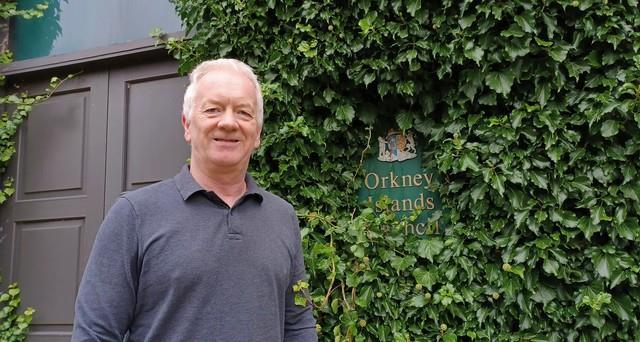Orkney councillors will discuss whether religious representatives should have a say in children’s education.
A motion lodged by Green councillor John Ross Scott and backed by Kristopher Leask will go to a full council meeting.
It says voting rights should be taken away from the three religious representatives sitting on the education, leisure and housing committee.
These rights should be reserved for “elected members of the council with a mandate from the electorate”, says the motion included in the papers for the meeting.
The council’s education committee reserves three seats for religious representatives.
However, these reps are not directly elected by the public. Instead, they go through a process whereby they are nominated to the committee by their parent body.
That nomination then has to be accepted by the councillors on the Education, Leisure, and Housing committee.
At least one seat on Orkney council’s education must be filled by a member of a Protestant church.
Are the roles always filled?
For many years Orkney’s education committee only had one religious representative, Hugh Halcro-Johnston. However, during his time in the role, he chose never to exercise his right to vote.
The other two seats remained empty and it was questioned whether Orkney council had ever filled all three seats.
Mr Halcro-Johnston retired in 2021 and his seat was filled by Rev Fraser McNaughton.
He came as the General Assembly of the Church’s Scotland’s nomination.
With Rev McNaughton’s help, the council made a plea for others to come forward and fill the empty seats.
In May last year, Rev Susan Kirkbride and Marie Lock were accepted to fill out the roster of religious reps.
This situation is not unique to Orkney, however.
Councils across Scotland are similarly required to have religious reps on their education committees under Scots Law.
However, some councils in Scotland have already stripped away voting right. Others, like Orkney council, are considering making the change.
What’s the problem?
The Humanist Society Scotland has been pushing for an end to voting rights for these representatives.
It said this is especially important for councils with a close balance between opposition parties.
The society pointed to cases where church votes could become tie-breakers for closely contested issues.
However, there is no such balance between parties at Orkney council, where there are two green councillors and 19 independents.
In Orkney, the motion to change the roles is coming from the Greens. However, other areas have seen the change requested by a mix of parties.
Speaking to the LDR service, Mr Scott said he is “astounded” that religious representatives in Orkney and elsewhere still have full voting rights.
He said it is “outdated” with senior politicians choosing to ignore the issue.
He also pointed out that other representatives on education committees go without voting rights.
Mr Scott said: “While appreciating the need for spiritual care in education, the fact that the law across Scotland, first enacted in 1948, states there should be three religious representatives has not been amended by any party in the Scottish political system astounds me.
“Every education minister of whatever party has refused to reduce the numbers or remove them from their advisory role even when the act was amended in 1975.
“Councils however do have the right to take away their voting rights.
Are the rules ‘outdated’?
“This is fair as, across Scotland, teacher, union, student and parents representatives serving on education committees do not have a vote.
“To date, only Perth and Kinross, Moray and Scottish Borders have stripped religious representatives of their voting rights.
“To bring fairness into the system I am hoping Orkney Islands Council will support this motion and that others currently contemplating the move – like Highland, Fife, Stirling and Edinburgh will follow the move.”
Mr Scott said he and Mr Leask first encountered “the anomaly” while researching for youth engagement study they produced in 2018 called Being Heard.
Mr Scott added: “I contacted all 32 councils to assess their views on whether students should have a place on education committees and the overwhelming view was if religious reps had three places with voting rights, why couldn’t students have one?
“This is an outdated rule which senior politicians are choosing to ignore.”
This is not the first time discontent with the current set-up has been raised by Mr Scott and other councillors.
Around this time last year, Rev Macnaughton replied to the criticisms.
He said he saw his role within the committee as playing a part in representing “a breadth of voices from across the community”.
He also added that he was not there as an “observer”.
Rev Macnaughton added: “You’re either on the committee or you’re not.”


Conversation